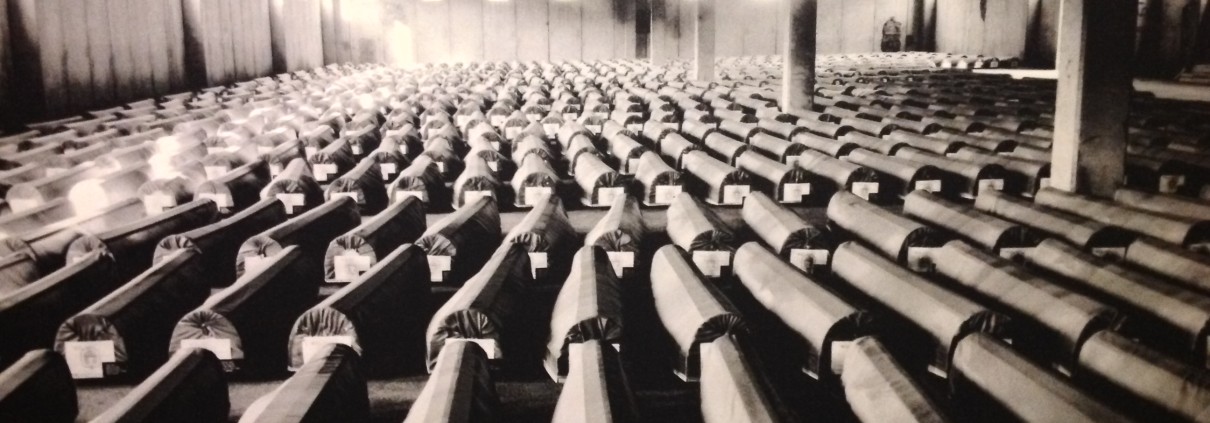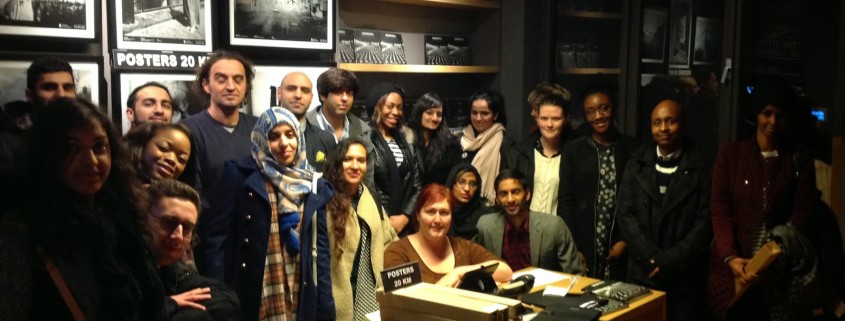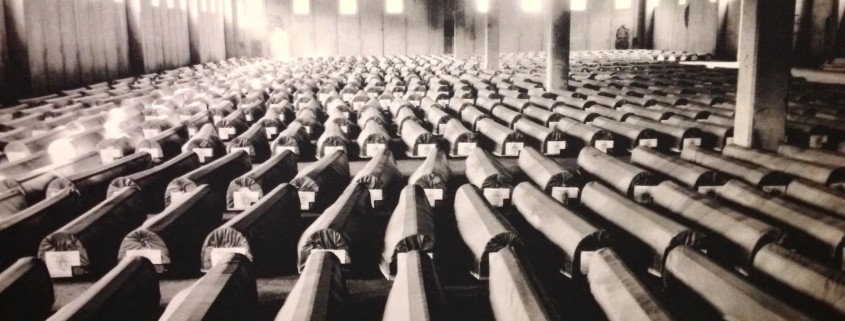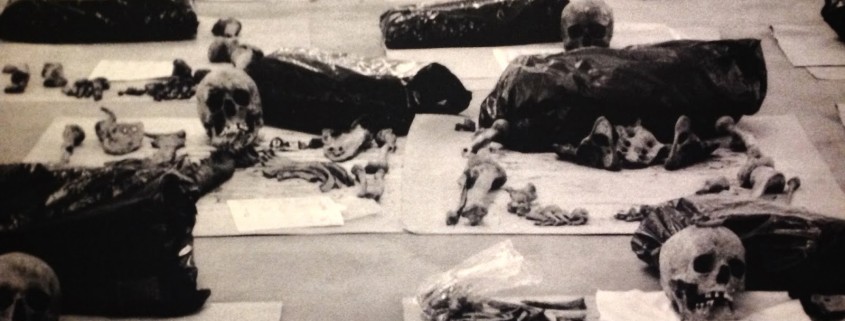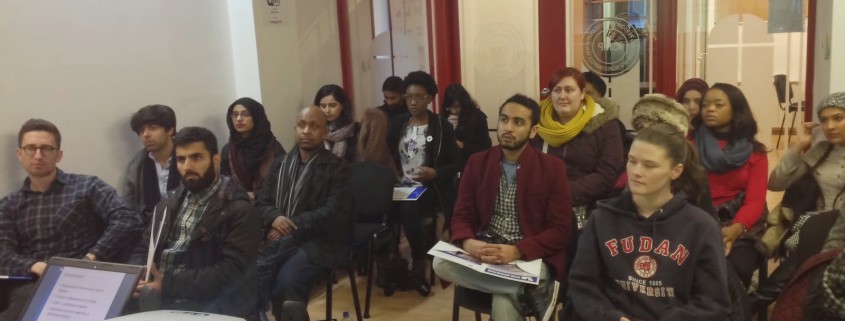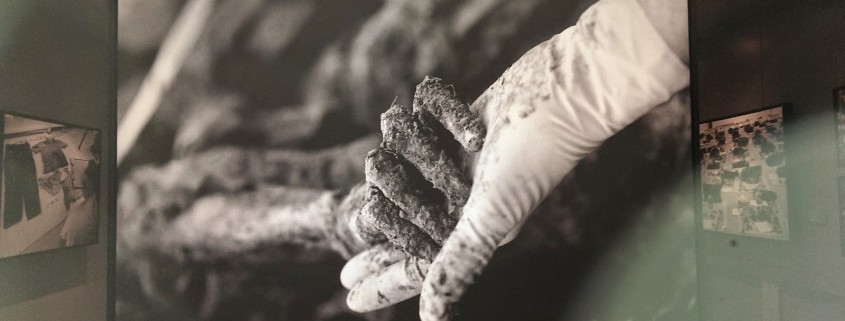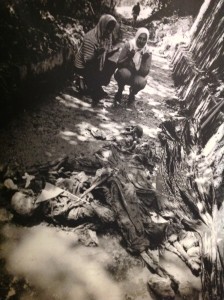The Ugly Side of War & The Beauty of Survival: Lessons Learned from Srebrenica
It’s been a while since I have written an article. My thoughts and experiences are sometimes difficult to express and capture into words. In fact, this is the first time that I feel compelled to write an article to share my personal thoughts and experiences. Therefore, I hope what I am about to share with you, will help you to have an understanding of the physical and mental journey that I have taken to understand what it really means to hate, forgive and survive.
I have recently returned from Bosnia and Herzegovina; where I was fortunate enough to be selected to participate in a learning trip with 20 young leaders from all parts of the United Kingdom that included; London, Birmingham and Manchester. The trip was organised by UpRising and Remembering Srebrenica. The purpose of the trip was to honour the memories and the courage of all the victims of the Bosnian war and genocide. With the aim that we would all use the lessons from the dreadful events in Srebrenica to create a better world, one in which our differences become our strengths, and the only thing left intolerable is injustice.
Prior to attending this learning trip, I had some knowledge of the Bosnian war and the genocide which happened there. But to be honest, I did not have a comprehension of what exactly took place and how many victims there were.
On our first night in Sarajavo, we were taken to meet Tariq Samarah at his Gallery 110795. At the gallery we watched a documentary about the war and the genocide. During that evening, I was shocked to see and find out that on 11 July, in 1995, 8,372 Bosnian Muslim men and boys were systematically massacred in Srebrenica. The gallery had a collection of unforgettable and distressing photographs taken by Tariq Samarah that captured the severity of what happened in Srebrenica during the war. When we asked Tariq, if he hated the oppressors and what was happening to his people, he said œwhen you hate someone for any reason, you let in weakness. He then explained that he took those photographs out of love for the people of Bosnia.
After visiting the gallery, I wanted to know more about the war and genocide. I wanted to understand why there was no intervention by the United Nations and the international community. I had many questions about the war and some of these questions were answered by the informative booklet that we were all given.
Throughout the whole trip, I could not stop reading the booklet and thinking back now, I believe this booklet helped me to cope with some of the shocking facts and stories that we saw and heard during the trip. There was a quote in the booklet that has stayed in my mind. The quote said; Ethnic cleansing was at the heart of the Bosnian war right from the earliest days. When I saw this quote, I speculated how ethnic cleansing can be part of a war which took place only 20 years ago; this seemed barbaric, inhumane and unbelievable. The more I read about the Serbian policy on ethnic cleansing, I was shocked to learn that this involved mass rapes and death camps. I found out that there were 20,000 rapes that had been reported, with 50,000 women estimated to have suffered sexual violence. The youngest age recorded of a rape victim was 12 years and during the war there were 10,368 women killed. The shocking fact about this is that only 7 soldiers had faced trial over rape charges and only 1 soldier pleaded guilty.
In the following days, we had a very busy schedule that involved visiting historical locations and meeting historians, academics, specialists and survivors.
On our third day, we met three mothers who had survived the systematic massacre in Srebrenica. These incredible women had lost their husbands, sons, brothers and nephews. I was astonished at the bravery of these incredible women, who sat with us as we watched a documentary detailing the death march and executions. I struggled to watch the documentary and I could not grasp the struggle and pain that these women had gone through.
After the documentary, we heard the individual stories of the women, which was overwhelming to hear. One of the women said to us that she sees us as her children and she does not see our religion or ethnicity. When she said this, I was moved because I could see in her eyes a mother who had lost her entire family. When we asked the women if they can forgive the Serbian soldiers and if they hated them; they said to us that they don’t know how to hate but they cannot forgive. They also said forgiveness is an act of an individual and if they were given the chance to kill the Serbian soldiers responsible, they would not. I understood what they meant by forgiveness, but I was marvelled by the courage they displayed in not returning an obviously hateful act with a hateful response, even after all the loss and pain that they had gone through. It was remarkable to hear their stories and what they had endured.
Later that day when we visited The International Commission of Missing Persons (ICMP), I realised that these three women along with the other mothers who had survived, had to re-live the pain of losing their families over and over again. You see during the war, the Bosnian Serb military did not only massacre and bury the bodies of the Bosnian Muslims, but they would also dig up their bodies and re-bury the remains at various locations. This was done to conceal the mass killings and make it seem like the buried bodies were casualties of war as opposed to innocent civilian victims. This means that at the end of the Balkan war 40,000 people had been reported missing and in 1996 the ICMP was established to find the missing people. To identify the thousands of bodies recovered from mass gravesites, ICMP uses DNA from blood and bone samples. Since 1996 ICMP has taken 71,195 blood samples. What this means for the mothers is that they would have re-live the pain of their loss, every time remains of a body is found. I found this very difficult to cope with, because if I had to go through that kind of pain over and over again, I don’t know if I would be able to depict the same patience and grace that I have witnessed with these mothers.
When I asked the surviving mothers, what I can do to help, they said to me three things, one; spread love and not hate. Share what you have learned here with others, two; we want to be recognised by United Nations and three we want our economy to improve so we can provide jobs for our young people.
I believe in the power of words and stories to change lives for the better and by attending this trip to Bosnia and Herzegovina I have taken a physical and a mental journey to understand what it really means to hate, forgive and survive. By writing this reflective article, I hope I am able to shed light to the consequences of hatred and misunderstandings between people. Therefore, I have learned that hate is a very powerful human emotion that can lead people to do very evil and unimaginable inhumane acts. But love can lift the human spirit to endure pain, loss and struggle to become a survivor and a positive energy that can in turn heal the hearts of many. Love can help people to see the good in our differences, regardless of religion, gender or nationality, just like the mother who said to us that she sees us as her children.
The incredible bravery and strength of the mothers that I had the honour of meeting has had a profound impact on me and how I see the world.
Please help me to honour the memories of all the innocent victims that have lost their lives to hatred by sharing this article and as a result ensuring that such horrific things do not go unnoticed or overlooked. All the innocent victims were more than just a statistic; they were fathers, husbands, sons but most of all they were loved ones.
Written by Farah Mohammoud

